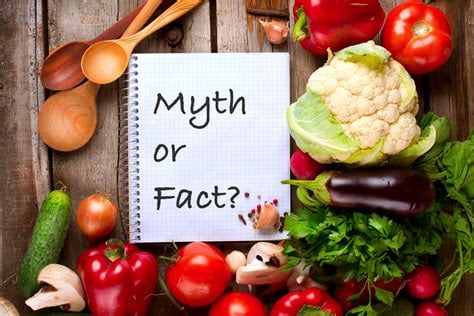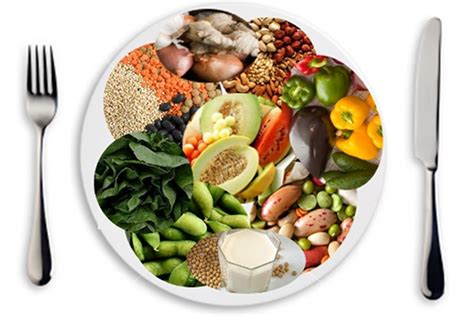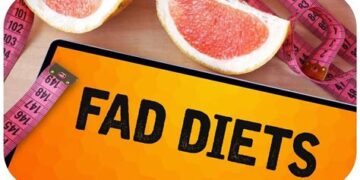In today’s information-rich era, misinformation about food and nutrition spreads quickly across the internet and social media. With conflicting advice from various sources, consumers often struggle to determine what is scientifically sound and what is mere myth. Renowned nutrition experts and scientists have spent years studying diet, metabolism, and the human body to uncover the truths behind these widespread misconceptions. In this comprehensive article, we will explore and debunk several common nutrition myths, provide clear evidence and expert opinions, and offer actionable insights for anyone looking to improve their dietary habits and overall wellness.
For decades, popular beliefs about nutrition have shaped the way people eat and think about food. Myths such as “all carbohydrates cause weight gain” or “detox diets cleanse the body of toxins” have not only influenced personal diets but also generated multi-billion-dollar industries built around unproven ideas. The allure of quick fixes and simple answers often overshadows the nuanced understanding that nutritional science demands.
Today, we dive into the world of nutrition myths with an evidence-based approach. We will dissect each myth, discuss the scientific research behind it, and explain why relying on oversimplified advice can be harmful to your health. The goal is to equip you with accurate knowledge so you can make informed decisions about your diet and lifestyle.
Myth 1: Carbohydrates Are Bad for You
One of the most persistent myths is that carbohydrates are inherently harmful and are solely responsible for weight gain and various health issues. In reality, carbohydrates are an essential macronutrient and the body’s primary source of energy.
The Role of Carbohydrates in the Diet
Carbohydrates fuel our brains and muscles, support proper digestion, and contribute to overall metabolic health. They are found in a variety of foods, including fruits, vegetables, whole grains, and legumes. The key distinction lies in the type of carbohydrate consumed:
A. Complex Carbohydrates:
- Found in whole grains, beans, and vegetables.
- Provide a slow release of energy and are rich in fiber, vitamins, and minerals.
- Help maintain stable blood sugar levels.
B. Simple Carbohydrates:
- Present in refined sugars and processed foods.
- Often lead to rapid spikes and drops in blood sugar, potentially causing energy crashes.
- Should be consumed in moderation.
Debunking the Myth
Numerous studies indicate that not all carbohydrates are created equal. Nutrition experts emphasize that the quality and source of carbohydrates matter far more than simply categorizing them as “good” or “bad.” A balanced diet that includes complex carbohydrates is associated with lower risks of chronic diseases such as heart disease and type 2 diabetes. Additionally, research shows that dietary fiber—primarily obtained from carbohydrate-rich foods—is vital for digestive health and can help reduce cholesterol levels.
Myth 2: All Fats Are Unhealthy
Another widespread misconception is that fats should be completely avoided for optimal health. This myth has led many people to adopt low-fat diets, which sometimes result in compensatory consumption of refined carbohydrates.
Understanding Dietary Fats
Fats are crucial for a variety of bodily functions, including energy storage, hormone production, and the absorption of fat-soluble vitamins (A, D, E, and K). However, not all fats are created equal:
A. Unsaturated Fats:
- Found in foods such as avocados, nuts, seeds, and olive oil.
- Known to support heart health and reduce inflammation.
B. Saturated Fats:
- Present in animal products like butter, cheese, and red meat.
- Should be consumed in moderation as high intake may raise cholesterol levels in some individuals.
C. Trans Fats:
- Often found in processed foods and hydrogenated oils.
- Universally recognized as unhealthy due to their link to heart disease and inflammation.
Expert Insights on Fats
Leading nutritionists now advise incorporating healthy fats into your diet. Research has consistently demonstrated that diets rich in unsaturated fats can lower the risk of cardiovascular diseases, improve cholesterol profiles, and support overall metabolic function. The key is to replace harmful trans fats and excessive saturated fats with beneficial unsaturated fats rather than eliminating fat altogether.
Myth 3: More Protein Means More Muscle
The belief that consuming large amounts of protein automatically leads to increased muscle mass is another prevalent myth. While protein is indeed a building block for muscle repair and growth, the relationship is more complex.
Protein Needs and Muscle Growth
Protein plays a fundamental role in repairing tissues, producing enzymes, and supporting immune function. However, there is a limit to how much protein the body can effectively use for muscle building:
A. Recommended Dietary Allowance (RDA):
- For the average adult, about 0.8 grams of protein per kilogram of body weight is sufficient.
- Athletes and those engaging in intense physical training may require higher amounts.
B. Quality Over Quantity:
- The type and timing of protein intake are essential for muscle synthesis.
- Combining protein with strength training is necessary to stimulate muscle growth.
C. Potential Risks:
- Excessive protein intake, particularly from animal sources, may lead to increased risks for kidney strain and other metabolic issues over time.
What the Experts Say
Nutrition scientists warn that focusing solely on protein without considering overall caloric balance and other macronutrients can lead to imbalances in diet and health complications. A balanced approach that includes a mix of proteins, carbohydrates, and fats is vital for overall health and sustainable muscle development. In essence, more protein does not always equate to better results unless combined with a comprehensive fitness and nutrition plan.
Myth 4: Detox Diets and Cleanses Remove Toxins
Detox diets and cleanses are extremely popular, promising a quick fix to eliminate toxins from the body. However, experts argue that the body already has an efficient system for detoxification.
The Body’s Natural Detox System
The human body is equipped with organs specifically designed to process and remove toxins:
A. Liver:
- Processes chemicals and metabolizes drugs.
- Converts toxins into less harmful substances that can be excreted.
B. Kidneys:
- Filter blood and remove waste products through urine.
- Maintain a balance of electrolytes and water.
C. Skin and Lungs:
- Act as barriers and contribute to detoxification through sweating and respiration.
Evaluating Detox Claims
Detox diets often involve fasting, juice cleanses, or restrictive regimens that promise rapid weight loss and toxin elimination. However, research indicates that these practices offer little benefit and, in some cases, can be harmful. Drastic dietary restrictions can lead to nutrient deficiencies, metabolic imbalances, and even a slowed metabolism over time.
Experts maintain that supporting your body’s natural detoxification pathways through a balanced diet rich in fruits, vegetables, lean proteins, and whole grains is far more effective than any short-term cleanse.
Myth 5: Organic Foods Are Always Superior
A common assumption is that organic foods are inherently more nutritious and safer than conventionally grown produce. While organic products have benefits, the differences may not always be as significant as claimed.
Understanding Organic Versus Conventional
Organic farming avoids synthetic pesticides and fertilizers, which appeals to many health-conscious consumers. However, the nutritional content of organic versus conventional foods can vary:
A. Pesticide Exposure:
- Organic foods generally have lower pesticide residues.
- Washing and proper preparation of conventional produce can also reduce these residues.
B. Nutritional Differences:
- Studies have shown mixed results regarding the vitamin and mineral content of organic versus conventional produce.
- In many cases, the differences are minimal and may not significantly impact overall health.
C. Environmental Impact:
- Organic farming practices can benefit the environment by promoting biodiversity and reducing chemical runoff.
- However, organic farming may sometimes result in lower crop yields.
Expert Opinions
Nutrition professionals emphasize that both organic and conventional foods can be part of a healthy diet. Prioritizing whole, minimally processed foods—regardless of whether they are organic or not—is crucial for maintaining a balanced nutritional intake. Cost and availability are also important factors; for many, the best choice is the freshest, most nutrient-dense options accessible within their budget.

Myth 6: Supplements Can Replace a Balanced Diet
With the booming supplement industry, many people believe that taking vitamins, minerals, or protein powders can compensate for poor dietary habits. However, no supplement can mimic the complex nutritional profile of whole foods.
The Role of Supplements
Supplements can be beneficial in certain circumstances, such as:
A. Deficiency Correction:
- Specific supplements can help remedy nutritional deficiencies diagnosed by healthcare professionals.
B. Targeted Support:
- Certain populations (e.g., pregnant women, older adults) may require additional nutrients.
C. Convenience:
- In busy lifestyles, supplements can serve as an adjunct to a well-balanced diet but should not be the primary source of nutrition.
Why Whole Foods Matter
Whole foods offer a matrix of nutrients that interact synergistically, providing fibers, antioxidants, and phytonutrients that supplements typically cannot replicate. Nutrition experts advocate for diets rich in vegetables, fruits, whole grains, lean proteins, and healthy fats to ensure that all nutritional bases are covered. Supplements should be used to complement—not replace—a healthy eating pattern.
Myth 7: Eating Late at Night Causes Weight Gain
Many people adhere to the belief that consuming food late at night will inevitably lead to weight gain. This myth has driven various dieting trends and eating schedules, but the evidence does not always support this claim.
Timing Versus Total Caloric Intake
Weight gain is primarily a function of energy balance—calories consumed versus calories expended—rather than the specific timing of food intake. Important considerations include:
A. Total Daily Calories:
- Eating more calories than your body burns, regardless of timing, will result in weight gain.
B. Food Quality:
- The nutritional value of your meals plays a crucial role in metabolism and overall health.
C. Individual Metabolism:
- Circadian rhythms do influence metabolism to some extent, but personal activity levels and meal composition often have a larger impact.
Expert Research Findings
Recent studies indicate that while some metabolic processes may fluctuate throughout the day, the overall effect of meal timing is less significant than previously thought. Nutrition experts advise focusing on balanced meals and consistent eating habits rather than obsessing over the clock. For those who experience digestive discomfort from eating late, adjusting meal times might be beneficial, but it is not a universal rule for weight management.
Myth 8: Gluten Is Harmful for Everyone
Gluten, a protein found in wheat, barley, and rye, has become a buzzword in nutrition, with many assuming it is harmful even for those without specific sensitivities. While gluten can cause serious issues for individuals with celiac disease or gluten sensitivity, it is not inherently dangerous for the majority of people.
Understanding Gluten Sensitivity
A. Celiac Disease:
- An autoimmune disorder in which gluten triggers an immune response that damages the small intestine.
- Requires a strict, lifelong gluten-free diet.
B. Non-Celiac Gluten Sensitivity:
- Some individuals experience discomfort after consuming gluten, yet do not show the autoimmune markers of celiac disease.
- The diagnosis is based on symptom resolution following a gluten-free diet.
C. General Population:
- Most people can safely consume gluten without adverse effects.
- Gluten-containing grains are a valuable source of fiber, B vitamins, and other nutrients.
What the Experts Conclude
Nutrition professionals and gastroenterologists agree that unless you have a diagnosed gluten-related disorder, there is no need to eliminate gluten from your diet. In fact, whole grains that contain gluten can contribute positively to a balanced diet. Unnecessarily avoiding gluten may lead to missing out on essential nutrients found in fortified breads, cereals, and pastas.
Myth 9: Superfoods Are a Miracle Cure
The term “superfood” is often used in marketing to describe foods that purportedly have extraordinary health benefits. While many nutrient-dense foods offer excellent nutritional profiles, no single food can cure diseases or guarantee optimal health on its own.
Evaluating the Superfood Trend
A. Nutrient Density:
- Foods labeled as superfoods, such as blueberries, kale, and salmon, are rich in vitamins, antioxidants, and healthy fats.
- They should be incorporated as part of a varied diet rather than relied upon exclusively.
B. Balanced Diet is Key:
- Health benefits arise from overall dietary patterns rather than consuming isolated “miracle” foods.
- A diverse diet provides a broader spectrum of nutrients that work together synergistically.
C. Marketing vs. Science:
- The term “superfood” is not a scientific classification; it is a marketing tool.
- Relying on this term without understanding the full nutritional context can lead to unrealistic expectations about the benefits of certain foods.
Expert Perspective
Leading dietitians stress that while nutrient-rich foods are valuable, a healthy lifestyle is built on variety, balance, and moderation. Emphasizing a single food group or product overlooks the importance of combining multiple food sources to meet nutritional needs. In summary, no single food is a magic bullet for health.
The Role of Nutrition Science in Debunking Myths
Advancements in nutritional science have significantly contributed to our understanding of the human body and the effects of diet on health. Researchers use controlled experiments, epidemiological studies, and clinical trials to investigate the impacts of various foods and nutrients. These efforts have led to the debunking of many long-held myths.
The Scientific Process
A. Research and Peer Review:
- Studies undergo rigorous peer review to ensure validity and reliability.
- Findings are scrutinized and replicated before becoming accepted as fact.
B. Evidence-Based Recommendations:
- Nutrition guidelines are continually updated as new evidence emerges.
- This iterative process helps refine our understanding of healthy eating.
C. Public Education:
- Experts strive to translate complex scientific findings into practical advice.
- Effective communication helps the public distinguish between evidence-based recommendations and popular myths.
The Importance of Critical Thinking
As consumers of information, it is crucial to question and verify nutrition claims. Relying on peer-reviewed research, reputable organizations, and expert opinions can help cut through the noise of misinformation. In a digital age flooded with conflicting advice, cultivating a habit of critical thinking is one of the best defenses against dietary myths.

Actionable Tips for a Balanced Diet
In light of the myths discussed above, here are some practical steps to maintain a healthy diet based on scientific principles:
A. Embrace Variety:
- Incorporate a wide range of foods from all food groups.
- Aim for colorful plates that include fruits, vegetables, whole grains, lean proteins, and healthy fats.
B. Read Labels Carefully:
- Understand ingredient lists and nutritional information.
- Be wary of marketing terms that sound promising but lack scientific backing.
C. Plan Balanced Meals:
- Structure meals to include balanced proportions of macronutrients.
- Utilize meal planning apps or consult with a nutritionist if necessary.
D. Stay Informed:
- Follow reputable sources for nutrition news and guidelines.
- Verify health claims through trusted organizations like the World Health Organization or national dietary institutes.
E. Listen to Your Body:
- Adjust dietary choices based on how your body responds.
- Consult healthcare professionals if you suspect food intolerances or nutritional deficiencies.
Practical Examples of Myth-Busting in Daily Life
To bring these concepts closer to home, consider these examples where debunking nutrition myths can transform everyday decisions:
A. Breakfast Choices:
- Instead of skipping breakfast due to misconceptions about carbohydrates, opt for whole-grain toast with avocado and eggs for sustained energy.
- Complement this meal with a side of fresh fruit to enhance fiber intake.
B. Lunch and Dinner Planning:
- Replace the idea that low-fat is always better by incorporating healthy fats from sources such as olive oil, nuts, or fatty fish.
- Prepare balanced meals that include lean proteins, a variety of vegetables, and whole grains.
C. Snack Selection:
- Avoid highly processed snacks laden with simple sugars; instead, choose nutrient-dense options like a handful of mixed nuts, yogurt, or sliced vegetables with hummus.
D. Dining Out:
- When eating at restaurants, ask about ingredients and preparation methods.
- Use your knowledge of nutrition to make informed choices, such as opting for grilled rather than fried options.
E. Supplement Use:
- If you are considering supplements, first evaluate your current diet.
- Discuss with a healthcare provider to determine if supplements are necessary, ensuring that whole foods remain the primary source of nutrients.
Integrating Evidence-Based Nutrition into Your Lifestyle
Adopting a science-backed approach to nutrition not only dispels myths but also encourages sustainable and enjoyable eating habits. Here are a few additional strategies to support your journey toward a balanced diet:
A. Consult Experts:
- Seek advice from registered dietitians and nutritionists who follow evidence-based practices.
- Personalized nutrition guidance can help tailor dietary choices to your individual health needs.
B. Educate Yourself Continuously:
- Read books, attend webinars, or take courses on nutrition to stay updated on current research.
- Familiarize yourself with reputable sources such as academic journals and official health organization publications.
C. Experiment Thoughtfully:
- Introduce new foods and recipes gradually.
- Monitor how different foods affect your energy levels, mood, and overall well-being.
D. Maintain an Active Lifestyle:
- Combine a balanced diet with regular physical activity to support overall health.
- Exercise complements healthy eating by improving cardiovascular health, boosting metabolism, and enhancing mental clarity.
Conclusion
In a world where nutrition myths can lead to confusion and poor dietary choices, understanding the science behind our food is essential. The myths surrounding carbohydrates, fats, protein, detox diets, organic foods, supplements, meal timing, gluten, and superfoods often obscure the real picture of balanced nutrition. By critically evaluating claims and relying on evidence-based research, you can build a healthier relationship with food.
Nutrition experts emphasize that a balanced diet is not about strict rules or the elimination of entire food groups. Instead, it is about making informed choices, enjoying a variety of nutrient-dense foods, and supporting your body’s natural processes. As you navigate the often-confusing world of dietary advice, remember that sustainable health is achieved through a combination of balanced eating, regular exercise, and a commitment to lifelong learning.
Adopting these science-based principles can help you bust nutrition myths, empower you to make better decisions, and ultimately lead to improved health outcomes. Whether you are looking to lose weight, build muscle, or simply maintain overall well-being, integrating the insights provided by experts into your daily routine is a step in the right direction.
By debunking prevalent myths and focusing on accurate, evidence-driven information, you not only enhance your personal health but also contribute to a broader culture of wellness and informed decision-making in your community. Embrace the truth behind nutrition, challenge misconceptions, and enjoy the journey toward a healthier, more balanced lifestyle.












